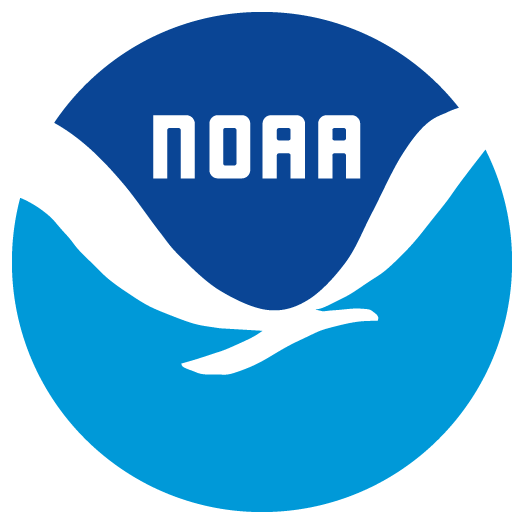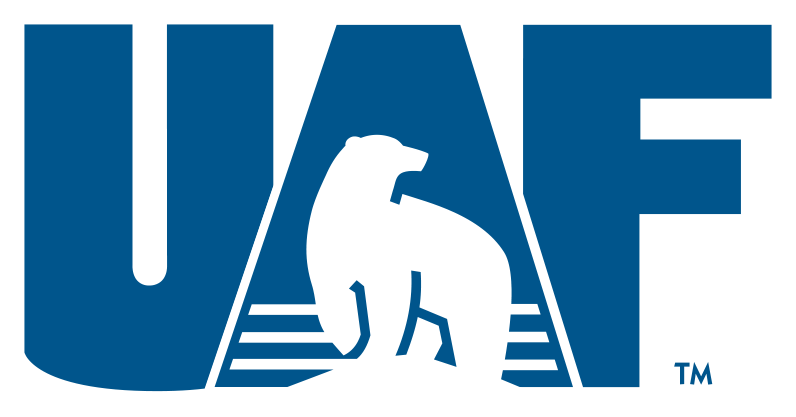Symposium Information
- Background and Goals
- Program
- Communicating Climate Science Workshop
- An Integrated Arctic Management Framework: BOEM-NOAA Panel
- Arctic Shelf Ecosystems Workshop
- Invited Speakers
- Proceedings
- Location & Facilities
- Visitor Information
- Registration
- Steering Committee
- Sponsors
- Symposium Contact Information
Background and Goals
The Arctic Ocean and its adjacent seas are undergoing rapid environmental changes, most notably in the extent and duration of sea ice cover. The biological consequences of these changes and their impacts on humans are complicated and therefore difficult to predict. For example, larger areas and a longer season of open water are likely to increase primary production, while low nutrient availability and more storm events may limit any such increases. Changes in the abundance and spatial distribution of some fish, birds, and mammals have been documented, but whether subarctic species will expand into the Arctic and how arctic species will respond to an extended ice-free season is highly uncertain.
This symposium seeks to advance our understanding of present and future responses of arctic marine ecosystems to climate change at all trophic levels from plankton to marine mammals to humans by documenting and forecasting likely changes in environmental processes and the responses of species to those changes. We encourage contributions that focus on collaborative approaches to understanding and managing living marine resources in a changing Arctic and to managing human responses—locally, regionally, and globally—to changing arctic marine ecosystems. We believe that important insight and innovation will come from residents of the affected arctic communities.
Program
Presentations will begin at 8:30 a.m. on Tuesday, March 26 and continue until noon on Friday, March 29. The program will be updated as necessary until the time of the meeting.
The official language of the symposium is English. Participants needing interpretation or translation services should provide their own, and notify the symposium coordinator.
Communicating Climate Science Workshop
On Monday, March 25, 7–9 pm, the pre-conference Communicating Climate Science Workshop will be held near the conference hotel at 1007 W. 3rd Avenue, Suite 100.
Audience: Climate Scientists, Science Education and Outreach Specialists, Science Communicators
Description: How can the evidence and implications of climate science be communicated effectively? How do people learn new, complex information and change their existing framework of knowledge, beliefs, and attitudes? Learn tips and tools that you can use immediately to more effectively communicate climate science at the multidisciplinary Wakefield Symposium, Responses of Arctic Marine Ecosystems to Climate Change, and in future outreach beyond the scientific community, in the highly politicized landscape of community members, journalists, and policy-makers. The single weather event of Hurricane Sandy increased the percentage of Americans who believe that climate change is happening, from 57% to an all-time high of 70%. Yet only 44% believe that scientists, their most trusted source of scientific information, are in agreement about climate change. This workshop will provide climate change communication resources and an opportunity to practice crafting science outreach messages that communicate effectively.
Space is limited. For more information contact Marilyn Sigman.
Sponsors: Alaska Center for Ocean Science Education Excellence (COSEE-AK), Alaska Sea Grant, University of Alaska Fairbanks School of Fisheries and Ocean Sciences, Alaska Ocean Observing System, UAF School of Cross-Cultural Education, Alaska SeaLife Center
Symposium sessions
During the symposium, oral presentations and posters addressing Responses of Arctic Marine Ecosystems to Climate Change will be presented on the following topics:
Session 1: Observed and anticipated environmental changes in the Arctic
This session examines past and future changes in the climate and oceanography of the Arctic in response to increasing levels of CO2 in the atmosphere. Contributions may address changes in ice cover, water circulation, freshwater inputs, ocean chemistry (including acidification), and nutrient dynamics.
Session 2: Lower trophic level productivity of arctic waters in a changing climate
This session addresses the consequences of a longer ice-free season and changes in advection for primary and secondary productivity in arctic waters based on past observations, process studies, and modeling studies.
Session 3: Marine fish resources of the Arctic in a changing climate
This session encompasses the biology and ecology of arctic fishes, distributional shifts of fishes into arctic waters, the capacity of local species to adapt to changing conditions, fisheries potential of the Arctic Ocean, and approaches to managing fisheries resources in the Arctic from local to pan-arctic scales.
Session 4: Observed and anticipated responses of arctic birds and marine mammals to environmental changes in the Arctic
Contributions may address distributional and demographic shifts in arctic seabird and marine mammal populations relative to changes in sea ice, including real examples of the responses of populations at the edges vs. the center of their range. Contributions may document management changes and population response.
Session 5: Effects of changing arctic marine ecosystems on humans
This session addresses the local, regional, and global impacts to humans (economy, culture, social well-being, etc.) of the changes described in the previous sessions.
Session 6: Understanding and managing arctic marine ecosystems in a time of change
Contributions may integrate our present understanding of physical changes and biological responses at the ecosystem level, highlight challenges resulting from these changes, and address the ways in which humans respond to changing conditions at local, regional, and global scales.
Download the abstract book [PDF; 920 KB] for further details on the presentations.
Poster Session
On Tuesday, March 26, at 6–9 pm, a reception/poster session will be held, with appetizers and cash bar.
Panel: An Integrated Arctic Management (IAM) Framework
On Wednesday, March 27, 7–9 pm, a panel session on Integrated Arctic Management (IAM) will provide a forum to discuss resource management, science, and decision-making in the Alaska Arctic. The panel will highlight current successes on collaborative science and management practices and discuss steps forward to gather Arctic-wide information that is relevant to future decision-making. All Wakefield participants are invited to attend. Fran Ulmer, U.S. Arctic Research Commission chair, will facilitate federal, state, and tribal panelists..
Moderator: Fran Ulmer (Chair, U.S. Arctic Research Commission)
Topics and panelists:
- Report on the Integrated Arctic Management Plan—Mike Sigler, NOAA Fisheries, Alaska Fisheries Science Center
- NOAA’s Integrated Ecological Assessments (IEA)—John Bengston, NOAA Fisheries, Alaska Fisheries Science Center
- The Perspective of Local Communities—Edward Itta, U.S. Arctic Research Commissioner—CANCELED
- State of Alaska Arctic Policy—Stefanie Moreland, Senior Advisor for Fisheries, Oceans and Arctic Policy, Alaska Governor's Office
- Integrated Management Strategies Being Applied to the Offshore Oil and Gas Program—Dr. James Kendall, BOEM, Alaska Regional Director
Workshop: Toward a Conceptual Model for Arctic Shelf Ecosystems
This workshop will be held on Thursday, March 28, 4–6 pm. Using the Chukchi and Beaufort sea shelf and slope regions as examples, the workshop will explore the key processes linking climate variability in the Arctic to biological responses across trophic levels. The workshop will review and build on previous conceptualizations by Carmack and Wassmann (2006, PiO 71:446), Wassmann (2011, PiO 90:1), and others. The goal is to refine our understanding of the basic processes shaping the biotic communities in these shelf ecosystems now and in the future.
Invited Speakers
The following experts will give invited talks at the symposium.
Keynote, Broad Science Perspective
- Sue Moore, NOAA Fisheries, Office of Science and Technology
Keynote, Community Perspective
- Edward Itta, Barrow, Alaska
Keynote, Arctic Research and Policy Issues
- Kate Moran, Ocean Networks Canada
Session 1: Observed and anticipated environmental changes in the Arctic
- Eddy Carmack, Department of Fisheries and Oceans Canada, Institute of Ocean Sciences
Session 2: Lower trophic level productivity of arctic waters in a changing climate
- Kevin Arrigo, Stanford University, Department of Environmental Earth System Science
Session 3: Marine fish resources of the Arctic in a changing climate
- Anne Hollowed, NOAA Alaska Fisheries Science Center
Session 4: Observed and anticipated responses of arctic birds and marine mammals to environmental changes in the Arctic
- Mike Hammill, Department of Fisheries and Oceans Canada
Session 5: Effects of changing arctic marine ecosystems on humans
- Phillip Loring, University of Alaska Fairbanks, Institute of Northern Engineering
Session 6: Understanding and managing arctic marine ecosystems in a time of change
- Jake Rice, Department of Fisheries and Oceans Canada
- Doug DeMaster, NOAA Alaska Fisheries Science Center
Symposium Summary
- Fran Ulmer, U.S. Arctic Research Commission
Proceedings
Alaska Sea Grant will publish an electronic-only, peer-reviewed proceedings, including full papers based on oral and poster presentations, soon after the symposium. Members of the steering committee will serve as editors for the symposium proceedings. Please see Manuscript Preparation Instructions [PDF; 181 KB].
Location and Facilities
All meeting sessions will be held at the Hotel Captain Cook in downtown Anchorage. The Captain Cook offers very nice accommodations with wireless Internet in meeting and guest rooms. Guest amenities include a café, fine dining, business center, health club, swimming pool, and whirlpool. Most guest rooms have great views of mountains or Cook Inlet.
Guest rooms will be available at the special meeting rate of $99 per night single or double occupancy plus 12% bed tax. Be sure to make your reservations directly with the hotel by February 25, 2013. This rate extends one day prior to and after the meeting dates. To secure the rate, register online or call the Captain Cook reservation number at 800-843-1950 and reference the group code "AKSEA13".
Hotel Captain Cook
939 W. 5th Ave.
Anchorage, AK 99501
1-800-843-1950 toll free or 907-276-6000
http://captaincook.com
The most convenient way to travel from the Ted Stevens Anchorage International Airport to the hotel is by taxicab. The cost should be about $15-$20 and will take 15 minutes. A more expensive option is to arrange limousine service through the hotel.
Visitor Information
For information on sightseeing opportunities and attractions, please see the following:
Registration
The registration fee for the symposium is $250 US ($200 student) if paid on or before February 26, 2013. The late registration fee will be $300 ($250 student) after February 26. The fee covers continental breakfast and break refreshments daily, a catered reception, symposium materials, and published proceedings. Please register and pay your fees in advance so that adequate materials are available. Online secure registration is available at the website for the symposium. Payment can be made with credit card or check.
Steering Committee
- Franz Mueter (chair)
University of Alaska Fairbanks, School of Fisheries and Ocean Sciences, Juneau, Alaska, USA - David Christie
University of Alaska Fairbanks, Alaska Sea Grant, Fairbanks, Alaska, USA - Henry Huntington
The Pew Environment Group, Arctic Program, Eagle River, Alaska, USA - Jim Irvine
Department of Fisheries and Oceans, Pacific Biological Station, Nanaimo, British Columbia, Canada - Harald Loeng
Institute of Marine Research, Bergen, Norway - Libby Logerwell
NOAA Alaska Fisheries Science Center, Seattle, Washington, USA - Steve MacLean
North Pacific Fishery Management Council, Anchorage, Alaska, USA - Lori Quakenbush
Alaska Department of Fish and Game, Fairbanks, Alaska, USA - Cheryl Rosa
U.S. Arctic Research Commission, Anchorage, Alaska, USA - Cynthia Suchman
North Pacific Research Board, Anchorage, Alaska, USA
Sponsors
- Alaska Department of Fish and Game
- Alaska Sea Grant College Program
- Department of Fisheries and Oceans Canada, Pacific Biological Station
- Institute of Marine Research, Norway
- NOAA Alaska Fisheries Science Center
- North Pacific Fishery Management Council
- North Pacific Research Board
- The Pew Environment Group
- School of Fisheries and Ocean Sciences, University of Alaska Fairbanks
- U.S. Arctic Research Commission
- U.S. Bureau of Ocean Energy Management
Symposium Contact Information
Email symposium coordinator.



